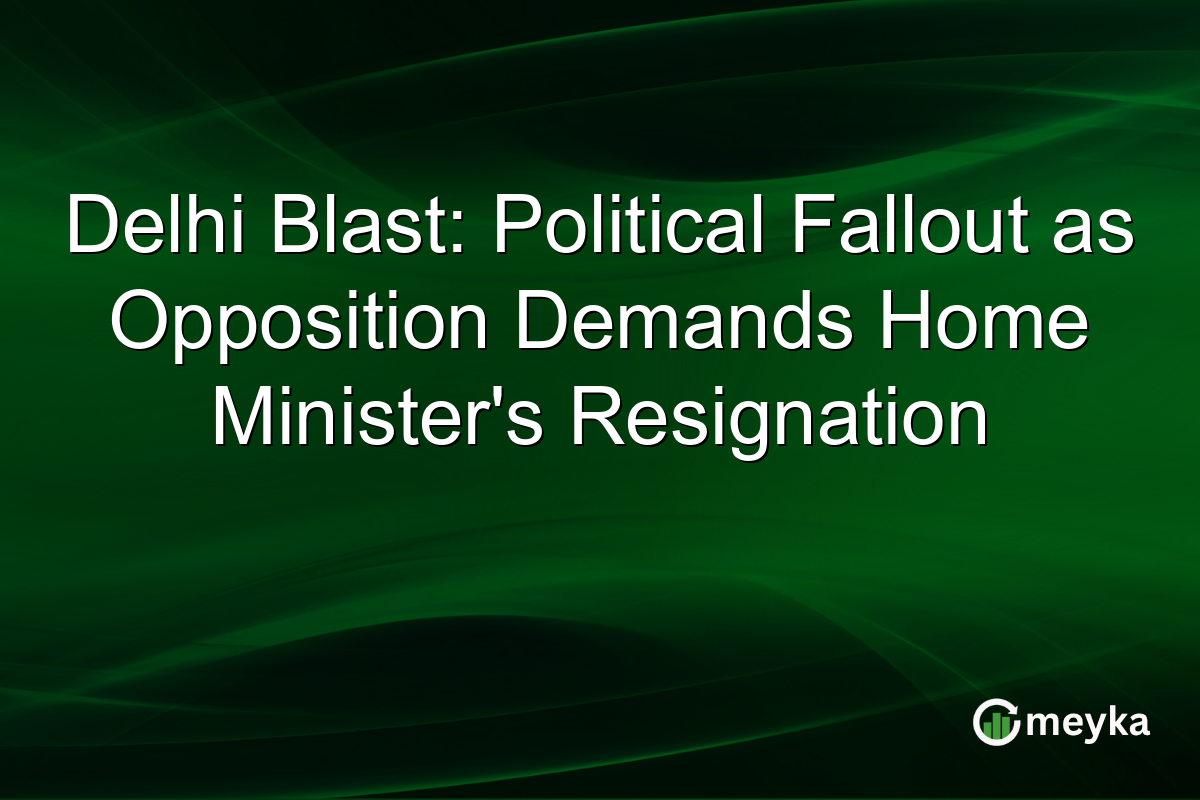Delhi Blast: Political Fallout as Opposition Demands Home Minister’s Resignation
A car explosion near Delhi’s historic Red Fort has ignited a political storm. The opposition is fiercely demanding Home Minister Amit Shah’s resignation, citing alleged intelligence lapses. This incident not only highlights ongoing security concerns but also intensifies the political debate over national strategies against terrorism.
Continue Reading on Meyka
This article is available in full on our main platform. Get access to complete analysis, stock insights, and more.
Read Full Article →





